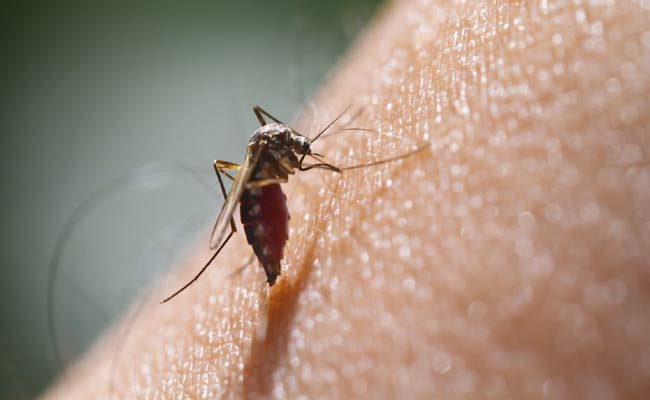Dengue, now a seasonal menace every year in India, has arrived rather early this time. Cases are already being reported from different parts of Delhi-NCR in March and April itself, months before the monsoons.

According to a report on vector-borne diseases by the South Delhi Municipal Corporation (SMDC), 79 cases of chikungunya and 24 cases of dengue have already been reported in 2017. Of the 24 dengue patients, 11 acquired the disease from a neighbouring state. Chikungunya and dengue cases had diminished in the first week of December last year, ending Delhi's worst chikungunya outbreak in a decade.
Although officials said the number of cases is likely to drop with the rise in heat, they warned that civic authorities need to act early to prevent the kind of outbreak the city saw in the latter half of last year. According to the WHO, there are about 190 million cases of dengue worldwide with 96 million cases needing treatment. In India too, there is 25% increase each year, mainly attributed to heavier monsoons and ineffective preventive steps to check mosquito breeding.
In this scenario, what can be done? What steps can common citizens take? Dengue is a tropical disease that originates from four different viruses. Carried by the Aedes egypti mosquito, symptoms include fever, headache, muscle and joint pains as well as skin rash. While there is currently no vaccine for dengue, it can be prevented by improving hygiene levels and prevention of mosquito breeding.
What are the most commonly associated symptoms that could be associated with the onset of Dengue?
- Severe headache
- Pain behind the eyes
- Nausea and vomiting
- Swollen glands
- Muscle and joint pain
- Skin rash
- High fever reaching 40°C/ 104°F
Why are some people more susceptible to Dengue?
- They live in a high-risk zone which has dingy, unclean surroundings with stagnant water that encourages mosquito breeding
- Some of them have been infected with dengue before
- They have low immunity
- Their platelet count is low
Make a diagnosis assessing:
- The temperature
- Associated symptoms such as nausea and vomiting
- Rash and general pain
The common tests for dengue
- Complete Blood Count
- ELISA test for dengue NS1 Ag
- PCR for detecting viral DNA
- Serum IgG and IgM test
Suggested Treatment
- Please seek medical advice immediately if common symptoms persist
- Drink plenty of fluids
- Symptomatic relief can be sought using NSAIDs (Non-steroidal anti-inflammatory drugs) such as paracetamol
- Do not take aspirin or ibuprofen since they can increase the risk of bleeding
- Follow instructions of medical practitioners diligently
If Dengue fever progresses to dengue shock syndrome, look out for these symptoms and visit your nearest hospital immediately:
- Severe pain in the abdomen
- Myalgia
- Fluid accumulation in the liver
- Hemorrhages
- Nausea
- Fluid accumulation in the chest
- Headache
How to prevent dengue
- Make sure all egg-laying habitats of mosquitoes, such as open and stagnant water sources are cleaned up
- If there are any open water sources you cannot eliminate, cover them and apply appropriate insecticides
- Use protections such as window screens, long-sleeved clothes, insecticide-treated materials, coils, vaporizers and repellant creams to avoid being bitten by mosquitosPromotedListen to the latest songs, only on JioSaavn.com
- A person can suffer from dengue a second time if the viral strain is different from the initial infection. So ensure adequate protection.
Inputs from ANI
DoctorNDTV is the one stop site for all your health needs providing the most credible health information, health news and tips with expert advice on healthy living, diet plans, informative videos etc. You can get the most relevant and accurate info you need about health problems like diabetes, cancer, pregnancy, HIV and AIDS, weight loss and many other lifestyle diseases. We have a panel of over 350 experts who help us develop content by giving their valuable inputs and bringing to us the latest in the world of healthcare.














